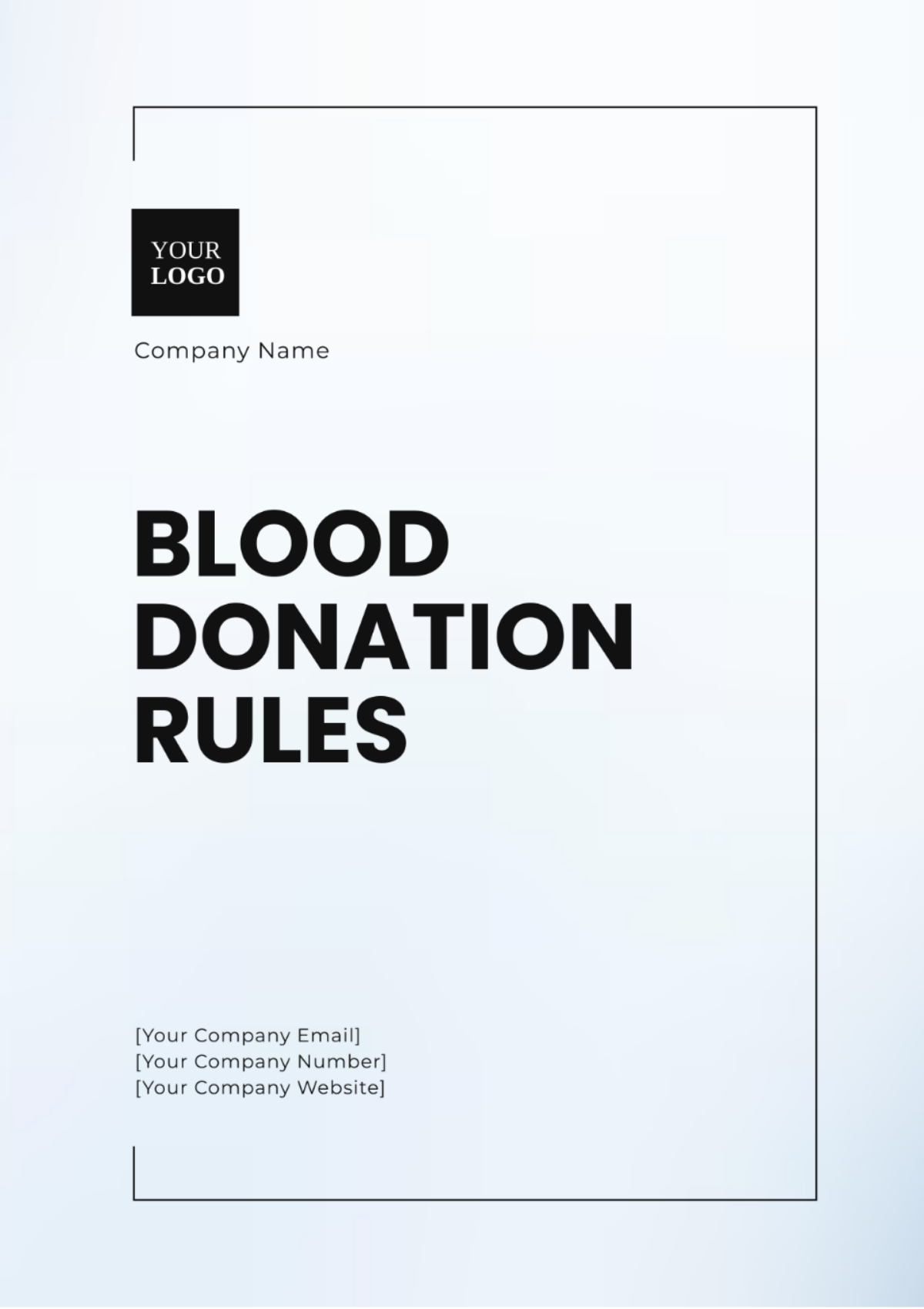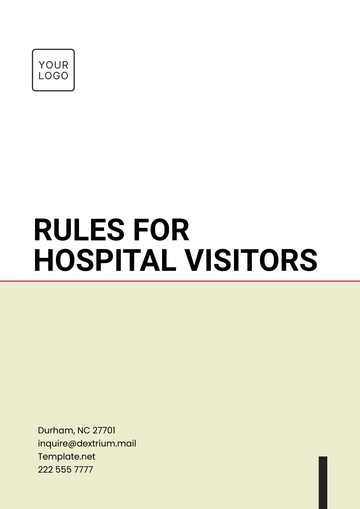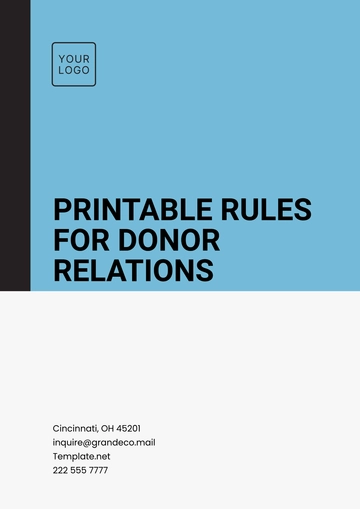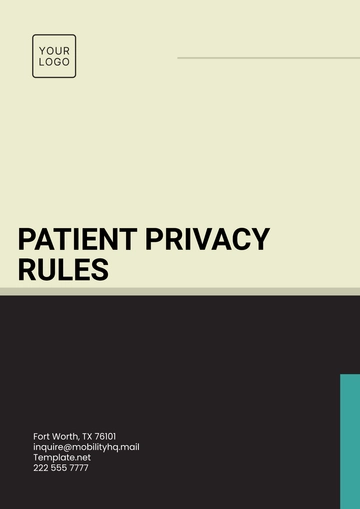Free Blood Donation Rules

Prepared By: [YOUR NAME]
Date: [DATE]
I. Introduction
Blood Donation Rules are essential guidelines designed to ensure the safety and efficiency of the blood donation process. They provide a framework for both donors and donation centers to follow, promoting the well-being of all parties involved and maintaining the integrity of the blood supply.
II. Purpose
These Blood Donation Rules aim to set and maintain standards ensuring donor safety and health, achieve top-quality blood collection, optimize the donation process, and rigorously comply with all relevant health regulations and standards.
III. Eligibility Criteria
Criteria | Details |
|---|---|
Age | Donors must be 16-70 years old; those under 18 may need parental consent. |
Weight | Donors must weigh at least 110 pounds (50 kg). |
Health Conditions | Donors must be healthy and infection-free; recent surgeries, chronic illnesses, or high-risk behavior can disqualify them. |
Travel History | Recent travel to areas with high rates of certain infections may affect eligibility. |
Lifestyle Factors | Donors must not engage in high-risk behaviors that could impact blood safety. |
Medication Usage | Certain medications may affect eligibility. Donors should disclose all medications to the donation center. |
IV. Pre-Donation Procedures
Health Assessment: All potential donors must undergo a health screening, including a medical history questionnaire and physical examination.
Consent Forms: Donors must complete and sign consent forms acknowledging their understanding of the donation process and potential risks.
Donor Education: Donors should receive information about the donation process, including preparation tips and what to expect.
V. Donation Process
Preparation: Individuals who are planning to donate are strongly recommended to ensure they are adequately hydrated and to refrain from consuming heavy meals before making their donation.
Blood Collection: A specially trained healthcare professional will draw the blood using sterile, single-use equipment to maintain strict hygiene, and the whole blood donation process typically takes about ten to fifteen minutes.
Monitoring: Donors will undergo continuous monitoring both during the donation process and after it has been completed, to ensure their overall well-being and address any potential health concerns that may arise.
VI. Post-Donation Care
Recovery: People who give blood or other substances should take a short break after donating and use this time to enjoy the refreshments and snacks provided by the donation center.
Possible Side Effects: Common side effects include dizziness, lightheadedness, or mild bruising. Donors should report any severe or unusual symptoms.
Aftercare Tips: Donors should drink plenty of fluids, avoid strenuous activities, and follow any additional instructions provided by the donation center.
VII. Safety and Hygiene Standards
Sterilization Procedures: Every piece of equipment utilized during the donation process must be both sterile and disposable. This practice is critical to minimize and prevent any potential risk of infection.
Use of Disposable Equipment: Needles and other tools are designed for single-use purposes and are meticulously discarded after each donation process.
Infection Control Measures: Donation centers are required to adhere to stringent hygiene guidelines to reduce contamination risks and assure safety for everyone involved.
VIII. Regulatory Compliance
Legal Requirements: All blood donation procedures must comply with the regulatory standards and guidelines set by local, national, and international authorities to ensure adherence at every level.
Reporting Procedures: Any adverse events or incidents that take place during the donation process must be reported to the relevant authorities responsible for oversight and management.
Audit Guidelines: Regular audits and inspections should be conducted to ensure adherence to these rules and to identify areas for improvement.
- 100% Customizable, free editor
- Access 1 Million+ Templates, photo’s & graphics
- Download or share as a template
- Click and replace photos, graphics, text, backgrounds
- Resize, crop, AI write & more
- Access advanced editor
Ensure safe and effective blood donation processes with the Blood Donation Rules Template from Template.net. This editable and customizable template outlines critical guidelines for managing donations. Customize the template with our Ai Editor Tool to fit your organization’s requirements. Promote safe practices and streamline blood donation protocols with this essential document.





























